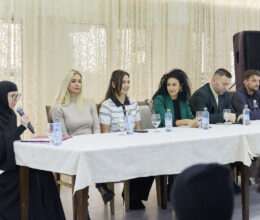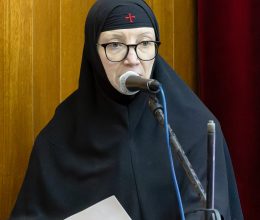On the afternoon of Saturday, November 9, the city of Debar hosted the first Forum held within the framework of a project supporting coexistence in the region, spearheaded by the Association for the Protection and Cultivation of Cultural Values “Rajchica.” This important multicultural and multireligious project was initiated with the blessing of our Elder, Bishop Parthenius of Antania, and is approved and supported by the Municipality of Debar.
The Forum, titled “The Family: Pillar of Love and Social Development,” for the first time brought together representatives of the two largest religious communities in the region—and indeed in the country—the Orthodox and the Islamic. Invited speakers, each contributing from their area of expertise, shared their insights into the chosen topic, thus enriching the public discourse with their perspectives.
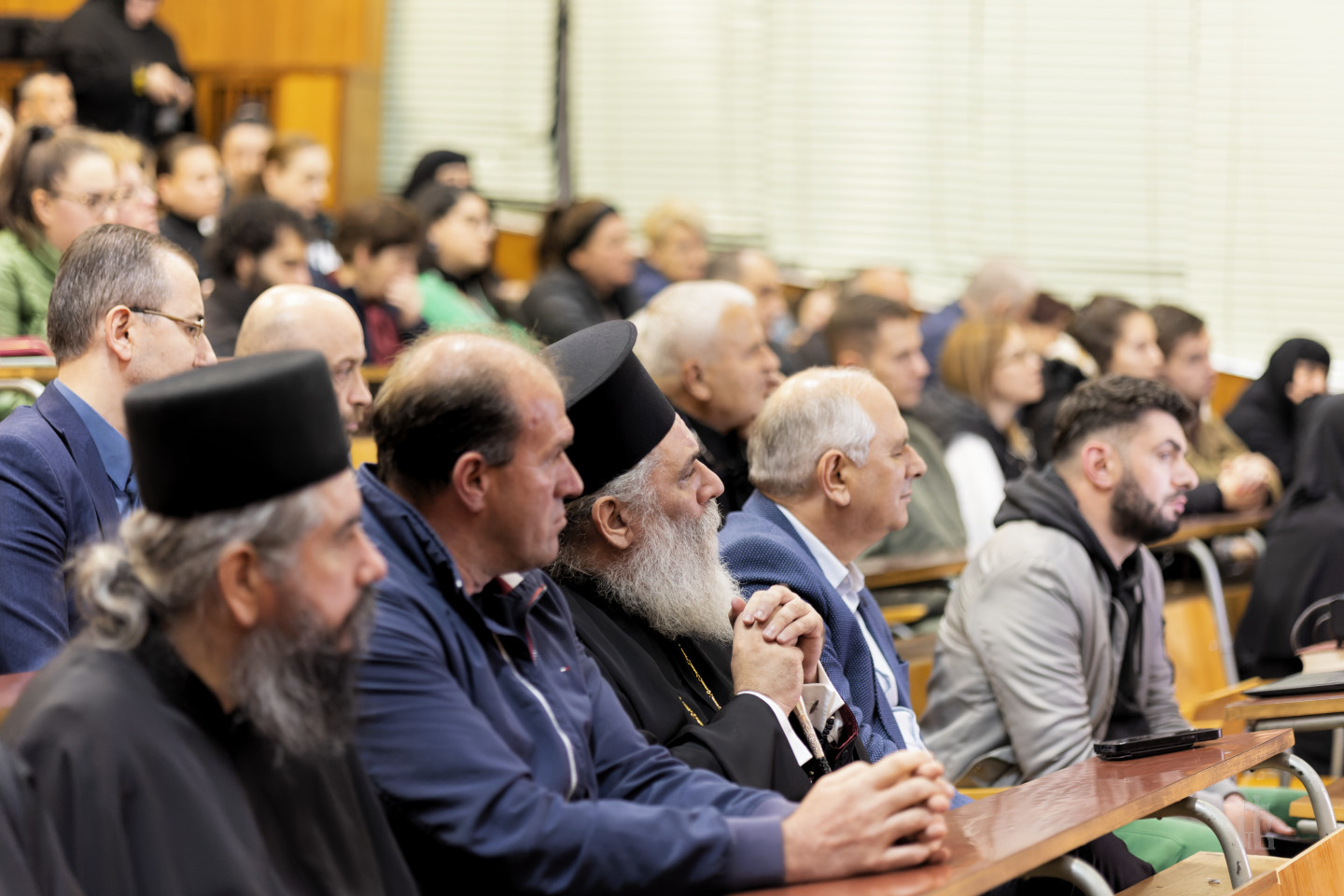
Among the many attendees from various ethnic and religious backgrounds, we were greatly pleased to welcome: our Elder, Bishop Parthenius of Antania, accompanied by Archimandrite Dositheus and members of our monastic brotherhood and sisterhoods; the Mayor of the Municipality of Debar, Mr. Hekuran Duka; the Mufti of Debar, Mr. Reshat Kachalniku; the Director of the Debar Cultural Center, Mrs. Edona Alili; parish priest Fr. Mile Angelovski; monks and nuns, educators and cultural workers, as well as numerous representatives of various institutions.
The forum was opened by psychologist Angelina Vaselevska, who emphasized the importance of peaceful coexistence in the region over the past decades, as well as the significance of discussing these themes in the public sphere. Following her, the Mayor of Debar Municipality, Mr. Hekuran Duka, addressed the audience, expressing his support for the event and underscoring the need to develop initiatives that promote the harmonious coexistence that Debar proudly upholds.
“I am particularly pleased that this forum will discuss family as a core theme,” said Mayor Duka, “as I have often attended forums on children’s rights or women’s rights, but I have never seen a debate that addresses the most important institution—family, which is the foundation of society. As the family is, so will our society be.” He also pledged continued support for initiatives that foster the development of young people within society.
The first lecture on the specific theme was delivered by Sister Efimiya Zajkovska from the Rajchica Monastery, who focused on contemporary challenges facing families.
“Today, despite all the economic, industrial, and technological progress, we observe a paradox that seriously harms the human soul: instead of advancing, humanity is regressing, facing tremendous stress, fear, ignorance, and disease. The most severe negative effect of modern development is the alienation between people, which means they are deviating from the purpose for which they were created—to live in community and unity with God. Professionally, people develop continuously, but they stagnate and falter when it comes to family; they have many virtual friends, but no deep, physical, and emotional connections with anyone. They are incredibly brave in taking on new complex challenges, yet seriously fearful to open their hearts to let others in”, Sister Efimiya emphasized in her address.
She also challenged the attendees to consider whether today’s families have the real capacity to counteract modern trends that focus primarily on individual development at the cost of alienation from one’s neighbor.
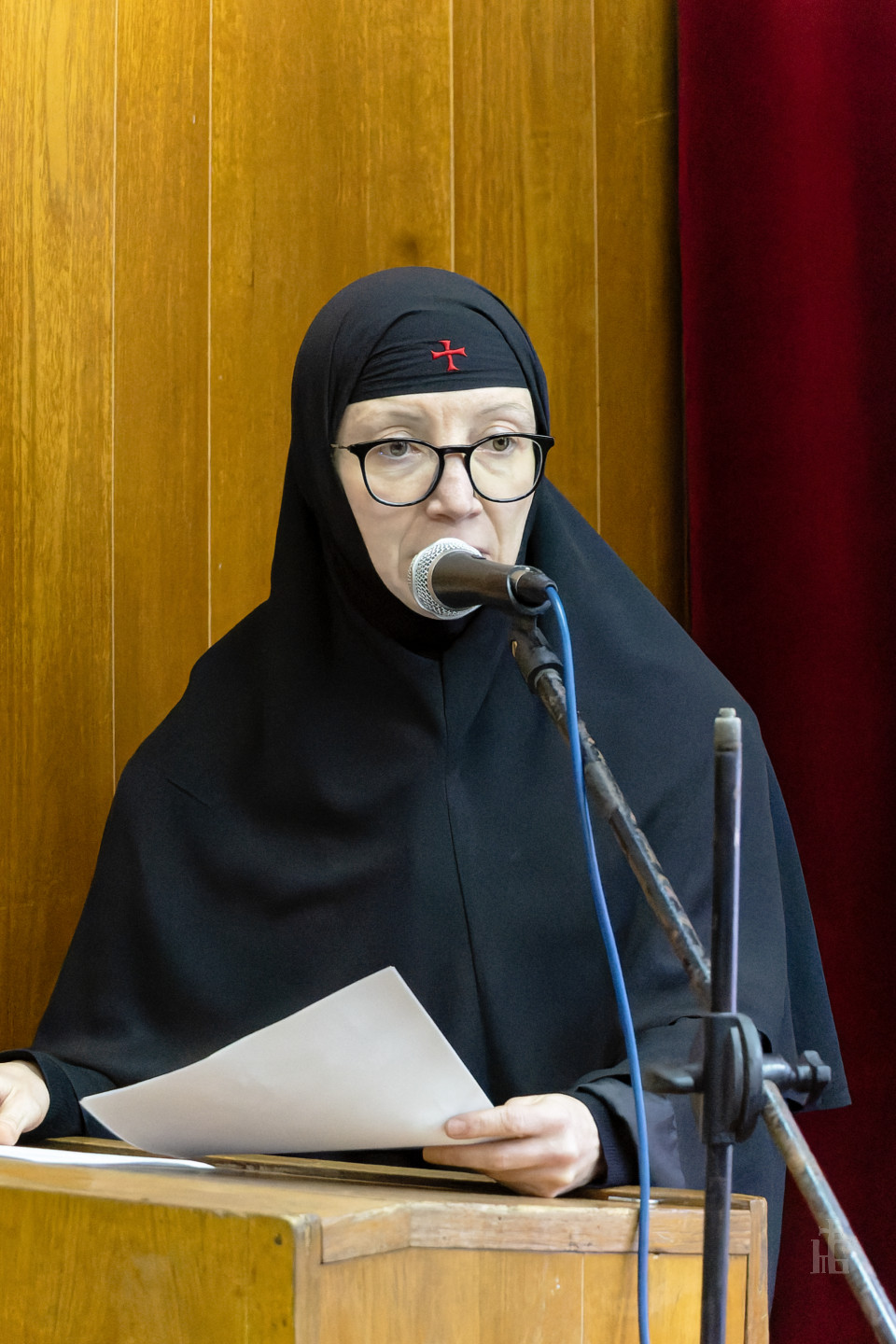
“In this modern environment, where we all realistically live, we have a task to offer our perspective, contribute to systemic changes, fight for better education for our children, and be steadfast in upholding moral values. We change society by influencing it through our positive example, defending, while we breathe, the values we acquired and learned through life within our families: respect for every person, humility, honesty, hard work, sacrifice, goodness, innocence, mercy, forgiveness, love! These family values must be passed from our small family circle to the large family of the world. If we possess them, then we will pass them on. For everyone passes on what they have learned; everyone gives from their heart what they possess within,” concluded Sister Efimiya.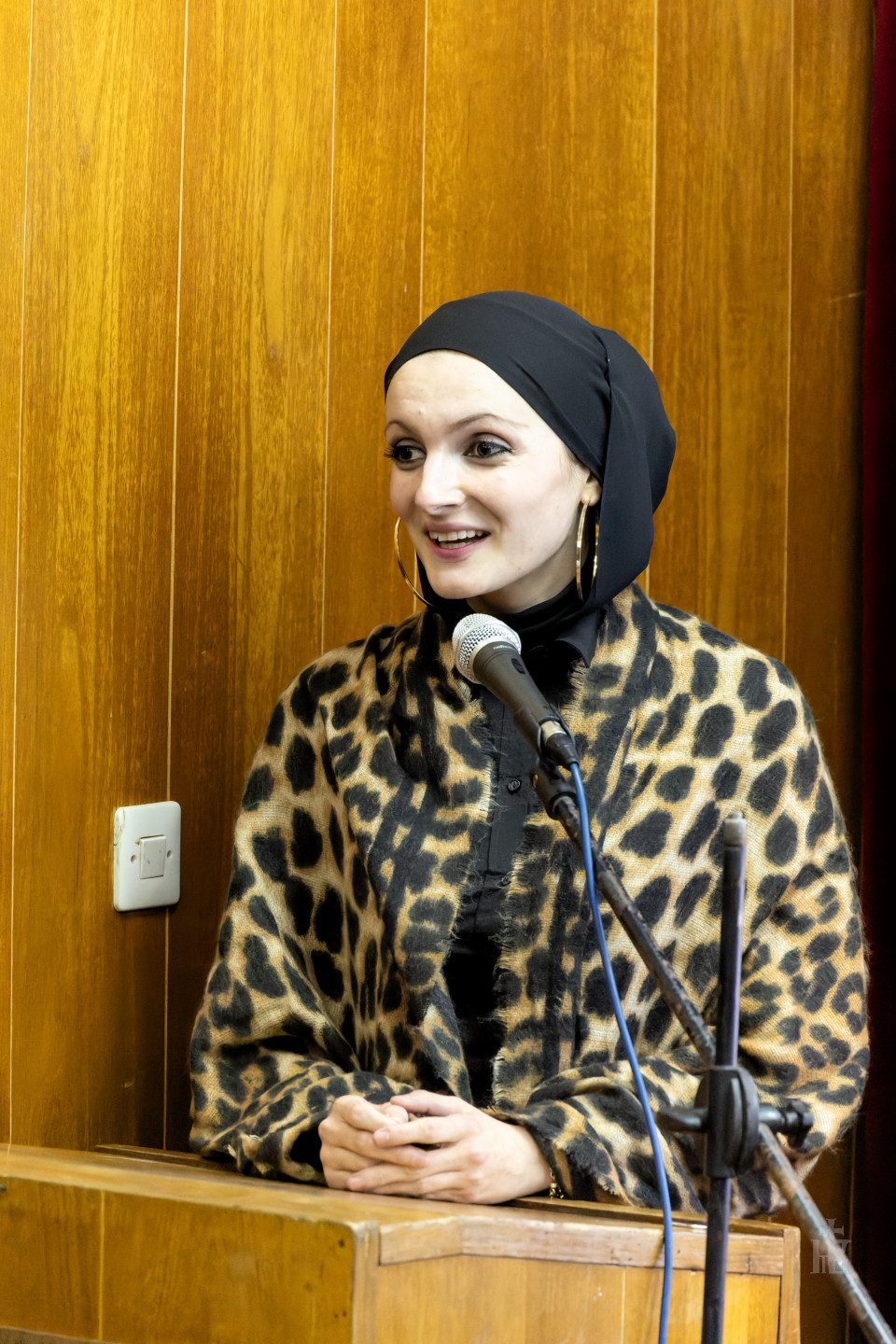
Immediately following Sister Efimiya’s address, clinical psychologist and psychotherapist Mrs. Sumea Ramadani took the stage, captivating the audience with her especially inspiring words. She stated that “in every religion, family is something sacred, the one place where we are accepted as we are, because only within the family do we rely on love. In a family, we are all the same—one for all, and all for one. Love is a fundamental need for us to survive in life. The love given by parents to the child is the love the child brings to the world. Family teaches us all social skills and provides emotional stability. And the mother, in particular, is the most sacred element, the most beautiful flower within the family; she is the one who unites the whole family and should be honored with grace. Of course, the father also plays a crucial role in the family and in the development of the child into a true person, but the mother is the most beautiful gift that the father can give to the child,” Mrs. Ramadani emphasized.
Following her address, Imam Mr. Orhan Zengo from Debar expressed his great satisfaction in being able to contribute to such a wonderful gathering.
He highlighted that “religion plays a key role in creating a truly healthy individual. To be religious is to be fully human in every sense of the word. Religion teaches us how best to build our family. Family is the first institution in which a true person is born and formed. From an Islamic perspective, in order to build a healthy individual, we must first build a healthy family. And the foundation of a healthy family is the marriage between a man and a woman, who themselves should be healthy and well-formed individuals. The responsibility lies with both parents, who must educate their child, instill in them all human and humane values, and shape them into a true person. Societal development depends directly on the individual and their character. The more good people we build, the quicker and better our society will grow and progress.”
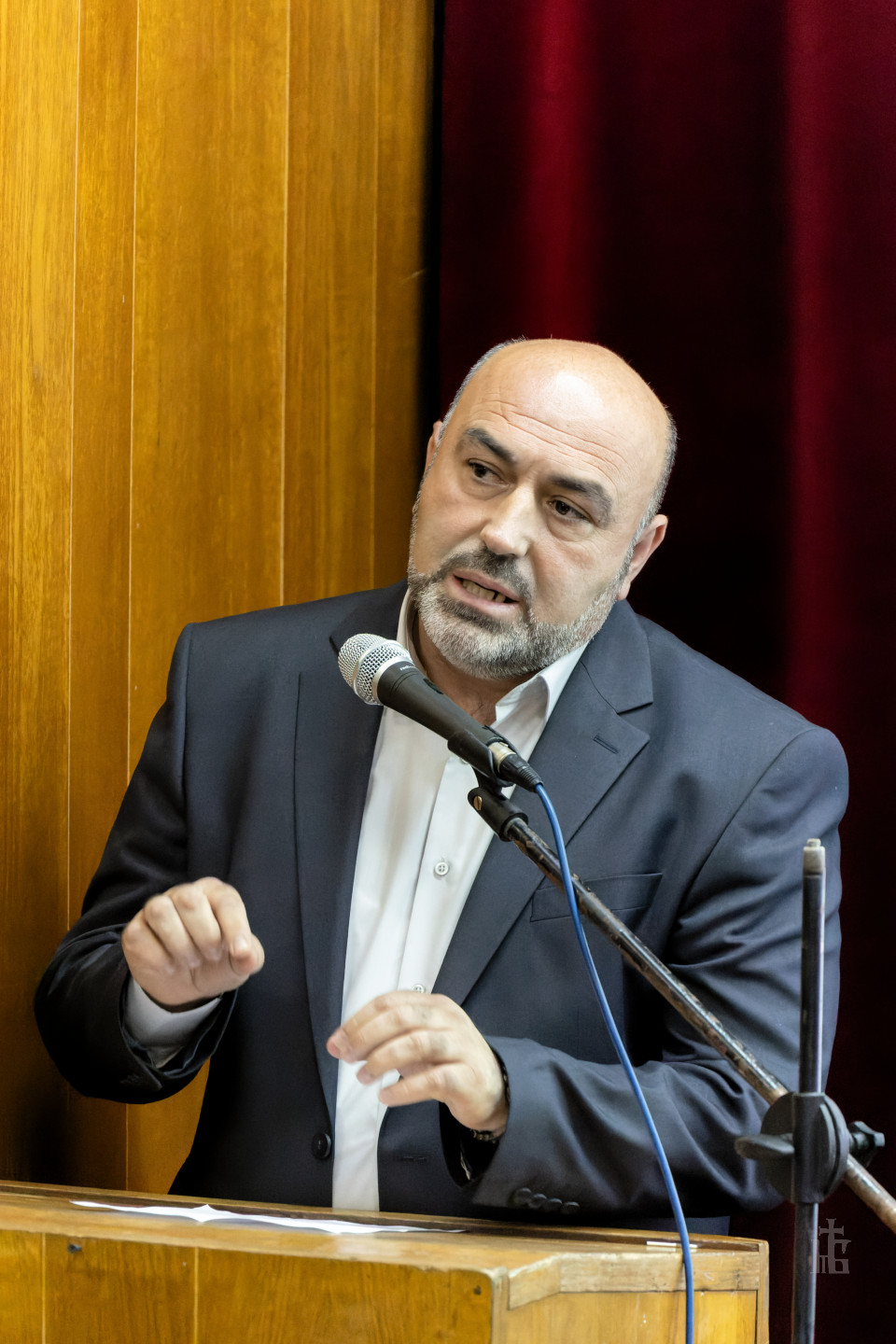
At the end of the event, Archimandrite Kiril Delovski from Bigorski Monastery addressed the audience, emphasizing the positive role that the city of Debar has played in fostering peaceful coexistence over the centuries. With theological depth, he highlighted the profound Orthodox perspective on marriage and family, concluding the event with the hope that this practice of dialogue would continue into the future.
“With great honor and joy, we have gathered today in this notable and noble city of Debar, which throughout the centuries has stood as a living symbol of coexistence, mutual respect, and brotherhood. It is a city where Christian and Muslim communities have always been close, where family values have been cherished within the home, and where the spirit of generosity and mutual understanding has been carefully passed down from generation to generation. Of course, there have been challenging times, and there have been those who attempted to sow discord, disrespect, and hatred. But here, thankfully, history remembers only the good examples and those who worked for the good. In this city, love and respect for one’s neighbor are built on a daily basis, making Debar a steadfast example of unity and respect for diversity in our country. I believe that our gathering today is a fruit of this longstanding tradition of unity and mutual respect – so essential to this city, and I dare say, to the world as well. Therefore, I am grateful to everyone who contributed to organizing this wonderful event, especially to the Mayor of Debar, Mr. Hekuran Duka, to our Elder, Bishop Parthenius of Antania, by whose blessing we are here this evening, and to the esteemed Mufti of Debar, Mr. Reshat Kaçanikliu.
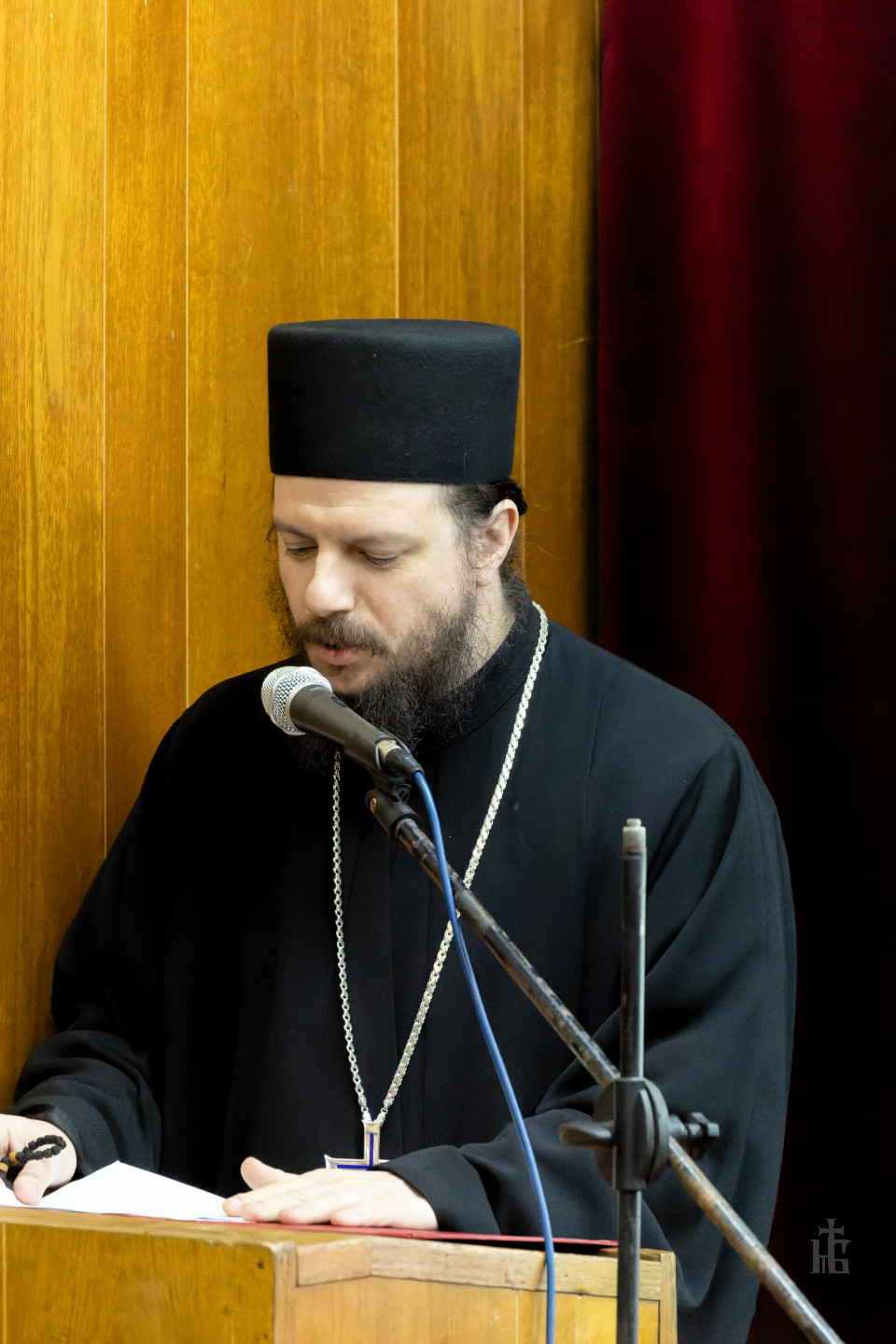
I would like to share the words of my niece Koprina, who, when she was only four years old, once said, ‘How sad the world would be if I didn’t have parents!’ Children, by natural order, have a vital need for parents in every aspect of their lives. The need for the warmth, presence, and support of parents is immeasurable and invaluable—it is embedded in the very being of the child. But the dilemma of our time, in this era of technocracy and the relentless pursuit of material values and modern trends, is whether parents are truly present for their children. We live in a society that values visible achievements, where a person is judged by their success on social media, by their income, and by the prestige of their position. This relentless pace impoverishes the human soul and distances it from the essential bonds that enrich life. Blinded by new ideals of success and self-fulfillment, parents are increasingly becoming victims of social media addiction and the soulless pursuit of career and wealth, prioritizing, above all, their digital image at the expense of familial closeness. The invisible price of this obsession is paid with a heavy toll: in lost moments, lost presence, and lost upbringing. In the eyes of the child, parents seem distant, absent—even when physically present. How sad it is when children seek their parents’ gaze, only to find screens that glow with a different light – a light that is neither warm nor life-giving, but cold and illusory. These screens, which steal the attention of the parents, send a message to the child that their time and their love are not important enough. A child wants a mother and a father, not successful businesspeople and perfectly polished digital images.”
We once again express our deep gratitude to the Municipality of Debar, to the publishing house “Prosvetno Delo” for their generous participation in this project by providing school supplies for children from rural areas, and to all the educators and cultural workers in the region who wholeheartedly support this project.
